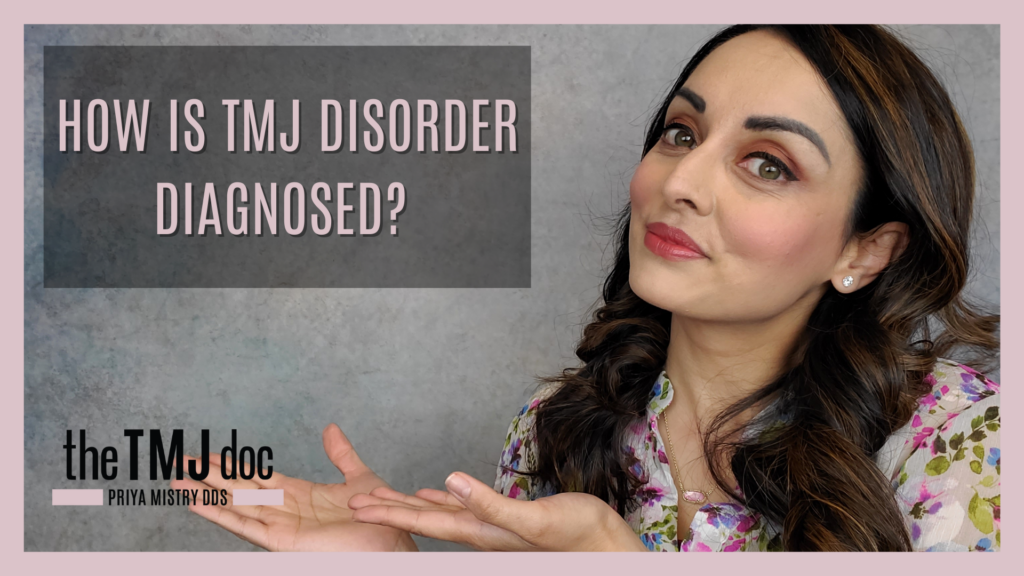Temporomandibular Joint Disorder (TMJ/TMD) can cause significant pain is often misdiagnosed or overlooked by medical professionals. This is because there is no standardized curriculum in medical or dental schools in terms of diagnosis and treatment of TMJ/TMD. Read on to learn how Dr. Mistry diagnoses TMJ Disorder.
TMJ/TMD Symptoms
TMJ/TMD symptoms can vary greatly, depending on the severity of the problem. Common TMJ Disorder signs and symptoms include teeth or facial pain, jaw pain, headaches, ear pain, stuffy ears, dizziness, jaw clicking/popping, jaw locking/catching, pain that radiates to the neck, shoulders, and back, discomfort or pain when chewing, talking, or opening your mouth wide.
The Role of a TMJ Practitioner
Dr. Mistry has limited her practice to taking care of those with TMJ Disorder. She is skilled and experienced in diagnosing and treating TMJ/TMD and celebrates a 90% success rate at her private practice in Vancouver, WA. Her expertise in this area is critical because TMJ Disorder often produces symptoms that mimic other medical conditions – such as Trigeminal Neuralgia, Cervical Dystonia, Chronic Migraines, Hemicrania Continua, and more. Dr. Mistry’s training and skills involve the use of specific diagnostic technologies and techniques that focus primarily on jaw joint function as well as the function and health of the muscles of the head, neck, and jaw.
Diagnosing Temporomandibular Joint Disorder
Symptoms and Pain History
Dr. Mistry’s thorough TMJ/TMD examination begins by gathering information about your symptoms and pain history. Dr. Mistry will ask you questions about when your symptoms first began, their frequency, duration, and intensity. She will ask about your orthodontic history, history of injury to your head, neck, and jaw, and more. Dr. Mistry will also review your complete medical and dental history as part of your consultation to identify any underlying conditions or previous dental work that could be linked to TMJ Dysfunction. This information helps your Dr. Mistry understand how your symptoms have manifested over time and gives her some information as to what may have caused your TMJ Disorder.
Physical Examination
Dr. Mistry will conduct a thorough physical examination by palpating your jaw joints and the muscles around your jaw, face, and head. The exam also involves having you open and close your mouth as Dr. Mistry evaluates our jaw range of motion and checks for jaw joint noises. Dr. Mistry will assess your posture as posture can have an impact on TMJ/TMD. Lastly, she will examine your bite closely as an imbalanced bite can also be a cause of TMJ/TMD. At the end of the physical examination, Dr. Mistry will provide a preliminary diagnosis.
Diagnostic Imaging & Workup Appointment
All imaging is done at the “workup” appointment – the next appointment after the initial examination. This imaging is used to solidify Dr. Mistry’s preliminary diagnosis. Diagnostic imaging such as a Cone Beam Computed Tomography (CBCT) scan is useful diagnostic technology as this digital imaging provides a detailed view of the bone and soft tissue structures within the jaw, head, and neck. These diagnostic images could reveal jaw joint deterioration, cervical spine problems, airway issues, and more. Dr. Mistry also uses TENS (Transcutaneous Electrical Nerve Stimulation) and the K7 scan (often used with neuromuscular dentistry) to measure muscles firing and to find the optimal position of the jaw. Dr. Mistry uses this position AND her knowledge of your jaw condition to create what is called your “prescription” and is built into the custom orthotics she makes. TekScan technology may also be used, which measures the relative bite force of every tooth. TScan measurements are followed up with DTR – Disclusion Time Reduction Therapy – for those who are candidates.
TMJ Disorder Evaluation/Examination in Vancouver, WA (near Portland, OR)
Achieving a pain-free life starts with discovering the cause of your pain with the help of a TMJ Practitioner near you. If you experience symptoms of Temporomandibular Joint Dysfunction, we encourage you to schedule a consultation with Dr. Mistry (the TMJ Doc) for a thorough and comprehensive exam. To learn more about TMJ disorder or schedule your appointment, contact The Dr. Mistry’s office by calling (503) 255-8293.







